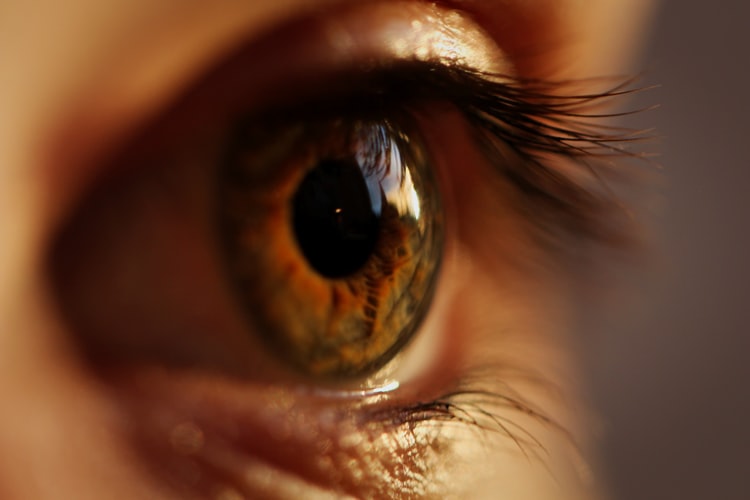
Are Your Contact Lenses Uncomfortable?
Most people are familiar with the traditional soft lenses which provide clear vision for those with nearsightedness (myopia), farsightedness (hyperopia), or astigmatism. In certain cases, particularly for those with corneal irregularities or astigmatism, Gas Permeable (GP), Rigid Gas Permeable (RGP) or Scleral Lenses are recommended.
Some people experience discomfort when wearing gas permeable lenses. For those patients, scleral lenses may be a more successful alternative.
What Are Gas Permeable Contact Lenses?
Modern-day hard contact lenses often provide sharper vision than eyeglasses or soft contact lenses. Gas permeable lenses are made of hard plastic materials and are called ‘permeable’ because they transmit oxygen to the cornea, thus keeping it healthy. GP lenses are ideal for individuals with astigmatism that may have been told that they cannot wear soft contact lenses.
The rigid nature of the lens holds its shape on the eye, which allows for more clear and stable vision correction. Though it takes a little bit of time to get used to wearing GP contacts, the clarity of vision and durability that these lenses provide make it worthwhile. Gas permeable lenses are uniquely fitted to each patient and take about a week to manufacture.
What are Scleral Contact Lenses?
Custom designed scleral lenses help patients with sensitive eyes or corneal irregularities achieve dramatic improvements in visual acuity and comfort. Scleral lenses vault over the cornea and rest on the sclera instead. This creates a new optical surface and prevents discomfort by minimizing irritation to the cornea. Moreover, the reservoir of pure saline solution between the back surface of the lens and the front of the cornea ensures that the eye is always in a liquid environment – making it optimal for health and comfort. This unique design makes scleral lenses the ideal lens for comfort, sharp vision and healthy eyes.
We recommend scleral lenses for the-hard-to-fit eyes, those with keratoconus, or astigmatism, or for people with a medium-high astigmatism that other contacts can’t comfortably correct. Scleral lenses are also perfect for anyone wanting to wear comfortable lenses while keeping eyes hydrated all day.
Below are the advantages and disadvantages of wearing GP lenses. This information can better assist you in making a better decision with regards to whether to choose one over the other.
What are the Advantages and Disadvantages of Wearing Gas Permeable Lenses?
Advantages of Gas Permeable Contact Lenses
Gas permeable contact lenses have a number of distinct advantages over typical soft contact lenses. In many instances of various eye conditions, a GP contact is required as soft contacts will not be comfortable or deliver the vision correction required. Here are some advantages.
Health & Hygiene
 Because these lenses are oxygen permeable, they provide the wearer with better comfort and a healthy cornea. Their ability to transmit oxygen reduces eye problems, such as dry eyes, which is caused by diminished oxygen transmission to the cornea – common among most soft lens’ brands or hard (non-GP) lenses.
Because these lenses are oxygen permeable, they provide the wearer with better comfort and a healthy cornea. Their ability to transmit oxygen reduces eye problems, such as dry eyes, which is caused by diminished oxygen transmission to the cornea – common among most soft lens’ brands or hard (non-GP) lenses.
GP lenses are made from a firm plastic material and retain their shape when you blink. This tends to provide sharper vision than pliable soft lenses and are extremely durable; unlike soft contact lenses, they don’t tear easily. They are easy to clean and disinfect, and when properly cared for, a pair can last a year or more.
Gas permeable lenses are made of materials that do not contain water and thus don’t absorb water from your eyes. Moreover, they harbor fewer protein and lipid deposits from your tear film than other contact lenses do, which renders these lenses a more hygienic and healthier alternative for your eyes.
Enhanced Comfort With Scleral Lenses
GP lenses have a smaller diameter than soft contacts, meaning that they cover less of the surface of your eye. While this may take some time to get used to initially, ultimately, many wearers may find that these lenses become comfortable over time.
Improved Visual Clarity
Due to their rigid material, GP lenses have a smooth surface and maintain their shape, moving along with the eye to hold their place. This provides sharp and stable vision. Furthermore, because they do not dehydrate, they don’t cause reduced vision, which is usually the case with traditional contact lenses. GP lenses can be worn on all eyes, but are particularly fitting for those with astigmatism or bifocal needs.
Cost of Gas Permeable Lenses
GP lenses are durable and long-lasting. Though costs are initially higher than traditional contact lenses, in the long term they are more cost-effective, and unlike disposable lenses, they don’t require ongoing replacement.
So why doesn’t everyone wear gas permeable lenses? Primarily because soft lenses are instantly comfortable, whereas GP lenses require an adaptation period before they reach the same level of comfort.
Disadvantages of Gas Permeable Contact Lenses
Sometimes, whether due to sensitivity, corneal irregularities, or various eye conditions, a gas permeable contact lens isn’t the ideal solution and scleral lenses may be required or preferred.
Requires an adaptation period
To achieve maximum comfort with GP lenses, you need to wear them regularly. If not worn for a week, you’ll require a few days to adapt and get comfortable wearing them again. This distinguishes them from soft contact lenses, which, even if not worn for a long period of time, are comfortable upon insertion.
Unstable on the eye
GP lenses are smaller in size than soft lenses, which means that they are sometimes prone to shifting or popping out. If stability is essential, scleral lenses are a better bet.
Dust and debris
 Because gas permeable lenses move on the eye with every blink, there is a higher risk of dust and debris getting lodged under the lenses. This can lead to discomfort and potential corneal abrasion.
Because gas permeable lenses move on the eye with every blink, there is a higher risk of dust and debris getting lodged under the lenses. This can lead to discomfort and potential corneal abrasion.
If you’ve tried gas permeable lenses and have experienced any of the above, or if you’re seeking a more comfortable alternative to wear all day, it’s worth looking into scleral lenses.
Visit us to find out how scleral lenses can be a better option for you. At the Boyle Eye Specialists Scleral Lens Center, our eye doctors specialize in fitting custom contact lenses, including sclerals, which provide excellent, effective vision correction for many hard-to-fit eye conditions, such as keratoconus and irregular corneas. We also recommend scleral lenses for astigmatism, when other types of contacts don’t work well.
We fit sclerals for patients from the Scranton area, as well as Lackawanna County,Dunmore, Dickson City and throughout Pennsylvania.
What are the Benefits of Wearing Scleral Lenses?
Scleral lenses provide the very best level of comfort, visual acuity and stability.
Stable Vision
With scleral lenses, you’ll experience consistently clear vision. Their large diameter ensures that they stay centered and stable on your eye. Their size also prevents scleral lenses from popping out easily, even if you play sports or lead a very active lifestyle.
Long-Lasting Lenses
Constructed from high quality, durable materials, these gas permeable lenses typically last for the long haul. Therefore, while the initial cost of scleral lenses may be higher than standard contacts, you’ll benefit from the maximum value for your money.
Safe and Easy-to-Use
The large size and rigid material make scleral lenses much easier to insert and remove from your eyes. These features also reduce the risk of accidentally injuring your cornea while you handle your lenses.
Comfort for Dry Eyes
While the scleral lenses vault over your cornea, they contain a pocket filled with moisturizing tears. This wet, lubricating cushion offers a very comfortable wearing experience, as well as healthier eyes. In addition, because sclerals don’t touch your corneal surface, rubbing is [minimized] and your risk of corneal abrasions is drastically diminished.
Wide Visual Field
The wide optic zone provides wearers with a wider, more precise peripheral vision. They also reduce sensitivity to glare and light.
Cost-effective
Scleral lenses are custom-fit to each eye. Though the fees for fitting sclerals and the cost of the lenses are higher than standard lenses, their life span and benefits make the cost worthwhile.
Though coverage rates and restrictions vary among providers, if considered a medical necessary, most insurance companies will reimburse the cost of scleral lenses. Consult with our eye care team at the Boyle Eye Specialists Scleral Lens Center to discuss your specific payment options and cost of scleral lenses.
Are Scleral Lenses Better Than Gas Permeable Lenses?
In terms of comfort, visual clarity and stability, scleral lenses are superior to gas permeable lenses. In cases of corneal irregularity or severe sensitivity, scleral lenses are often the only viable option. However, they are more costly than GP lenses as well.
The question of which contact lens is best for you should ultimately be decided in conversation with us. Trained in fitting specialty contact lenses of various types, from the simple near-sighted first-time wearer to the complex astigmatic, bifocal or distorted cornea patient, Dr. John Boyle will consult with you about your best options.
Our practice serves patients from Scranton, Lackawanna County, Dunmore, and Dickson City, Pennsylvania and surrounding communities.